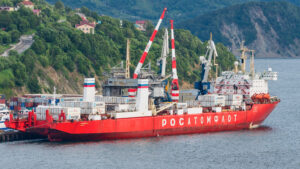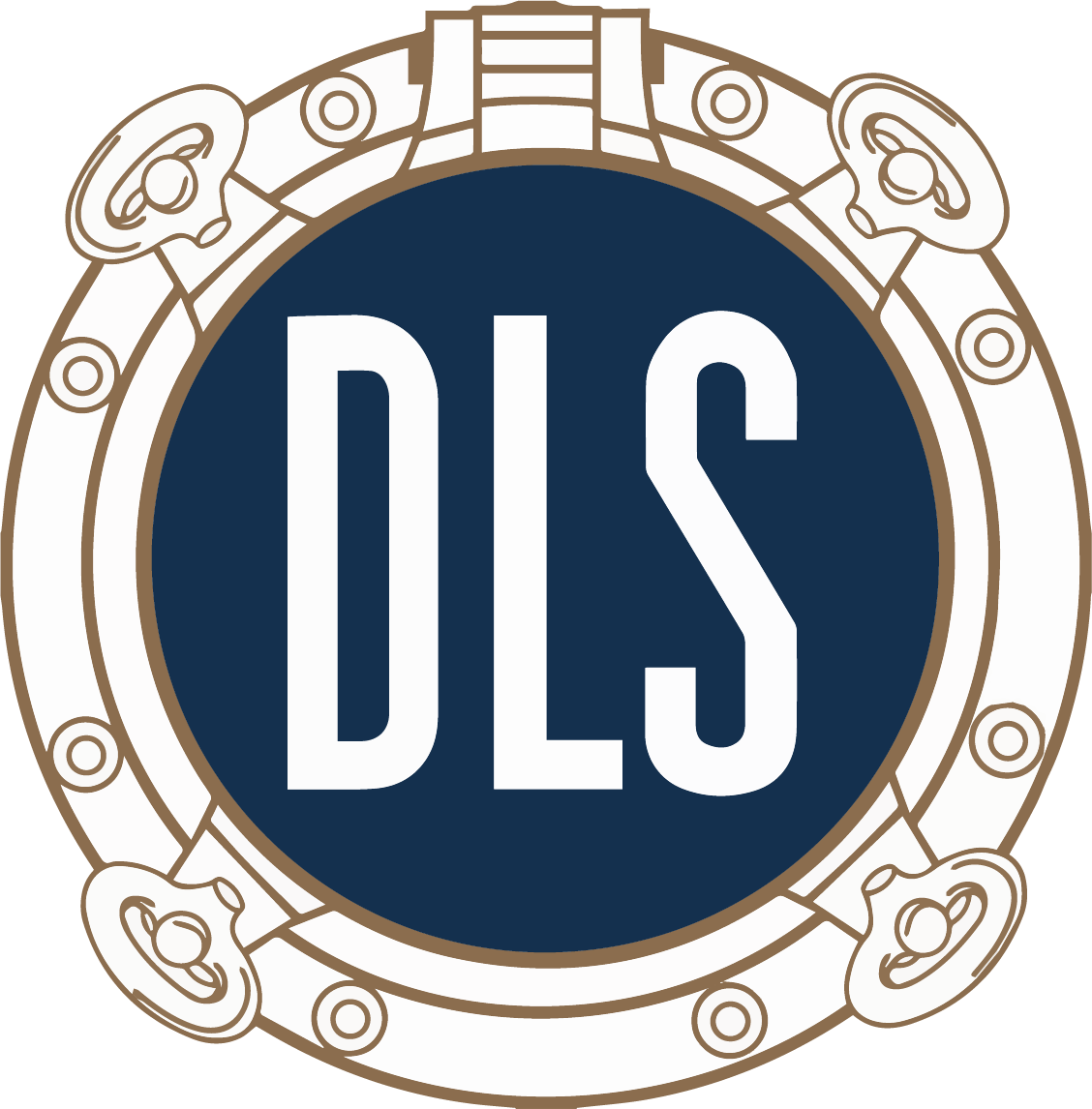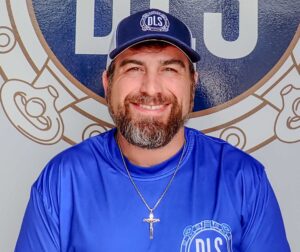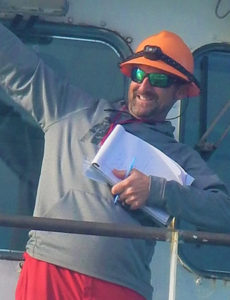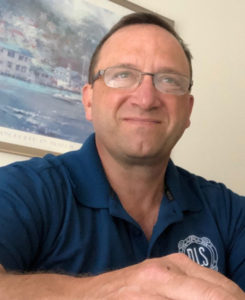- December 11, 2020
- Industry
- Will Staycations Save the Domestic Day Cruise Passenger Business?
The blue water overnight passenger business is comatose. Will a vaccine make 2021 a profitable year? Or at least a break even year? Right now it looks like the industry might not even resume anything that might be called “service” until the second quarter of 2021.
But I believe that there may be hope for the domestic day passenger operators. The day tours, lunch and dinner cruises, whale watching, and charter fishing companies.
“If you want a guarantee, buy a toaster.”
– Clint Eastwood
With a vaccine, a day trip – mostly open air, small group, and limited hours – may be psychologically acceptable to more people. Avoiding crowded travel and within one’s new discretionary funds budget, we have the Staycation.
While large international operators like Carnival are selling off “excess” assets, a review of the pages of Boats & Harbors, the national commercial marine marketplace classified ad paper, showed little activity in ads for day passenger vessels of all kinds.
Looking over the issues from January to the first issue of November the number of vessels being offered and their asking prices, where shown, barely changed. Most ads were unchanged over that 10-month span. There were a few added, which is not unusual at the end of a summer season, and there was only one dropped price.
A broker I spoke with stated that sales of day passenger vessels over the past 6-months have been slow but steady, and deals are more indicative of Fair Market Value than duress sales.
In speaking with people in the business, we heard opinions from several front-line sources that most operators want to hold on to their boats as they believe that replacing them when the market changes might be expensive. If they can sit out 2020, they have expectations that in 2021 they can resume business at a level where they can cover expenses or even make up a bit for the losses of 2020.
Owners/operators have help in holding on as most lenders have no interest in calling in loans and ending up with the expense of protecting an asset on top of a failed loan.
A recent issue of Foghorn, the magazine of the Passenger Vessel Association, had an article on how to “stay alive” during this financial crisis. The bottom line was to guard the bottom line by acting as if you had a startup company with no income. Keep your overhead as low as possible and watch the income carefully. If you are in a competitive market, price yourself competitively, but at least at a break-even level. In a better market, price yourself fairly until you can slowly build the business back and then price tickets for a better margin. Then you might be able reach a point where you can recover some of the losses of 2020.
There are some tips for holding on. Operators should be able to lower their overhead. The cost of fuel is down. And just as I have gotten a rebate from my automobile insurer due to reduced mileage, vessel owners can act similarly. If the vessel is not operating at all there is only the need for port risk insurance. If one is operating at a reduced schedule and capacity, both should be grounds for negotiating reduced premiums. And renegotiate ones dockage or slip fees.
In the Gulf of Mexico offshore market, it is not unknown for crewboats to adjust their Certificate of Inspection to fit a contract. While the boat may be able to carry 72 passengers out 20 miles, if it should get a contract where it will only carry less than 50 passengers on a 5 mile route, the COI can be amended for that. That can affect the insurance premium and also slightly reduce maintenance cost by not having to maintain as many life jackets, and possibly rafts. Such a change may even lower the required number of crew.
And owners can also be preparing to be the first ones in operation when the demand returns. Now is the time to prepare the boat for spring. Have you put stabilizer in the fuel? Are you draining condensate water from the fuel tanks?
Have you checked all hoses and clamps for condition and age? Don’t miss a trip for some minor maintenance failure.
And, do you renew a COI now? Spending money now, with no income, can be a tough call. But you can’t catch customers if you are waiting in a queue for a Coast Guard inspector.
The proverbial gorilla in the industry, Hornblower, is making news. Besides the expansion to Niagara Falls, Moody’s has mentioned Hornblower’s weak liquidity and there is mention that the company had only $28,000,000 in cash on hand in mid-September. Having a large number of their 157 vessels idle cannot help cash flow. Operation of the NYC Ferry System, subsidized by the city of New York, has been badly hit by the work-from-home movement and the closure of restaurants and bars.
As with all cities, sales and amusement related tax income has been flattened so the city of New York may have problems justifying the subsidy. But it is reported that the city and Hornblower feel that service will grow in 2021 through resumption of some office work and reports of expanded taxi route service.
Hornblower’s contract for the Statue of Liberty/Ellis Island tours comes up for renewal in early 2021, but the rumor is that there will be no opposition.
Crestview Partners took over Hornblower in 2018 and have provided support funding, but just recently Caspian Capital backed half of a $90 million dollar loan to Hornblower at a reported 11% interest. Caspian is noted to be a company that specializes in investment in troubled companies.
This entire industry is an interesting one to follow as appraisers of marine equipment. While day tour and whale watch boats, and even passenger ferries, can be similar in design and utilization, dinner cruise vessels are different. There is certainly their size, capacity and operating range, but also their outfitting. As a floating restaurant, the food, service and ambiance can vary and the ultimate income producing ability of the vessel can be based on the service side as much or more that the particulars of the vessel.
DLS Marine, having surveyed and appraised these vessels for decades, still find it interesting to look into the individual markets, search for comparables, talk to operators, and understand how the passenger vessel being valued fits its present market and possibly markets of interested purchasers.
** ADDENDUM **
After I finished the above piece, I met Captain Mike Valentino. He and his wife were in New Orleans last weekend playing tourist the right way. They visited the Sculpture Garden at the Museum of Art and some of the city’s famous cemeteries. Outdoors, open air, no crowds, and free. For several decades Captain Valentino has operated Trigger Happy Fishing, a six pack charter fishing business launching off the beach at Grayton Beach, Florida, on the Panhandle of the Florida Gulf Coast.
Since Captain Valentino’s business might be the smallest fish (ahem) in the marine passenger business, I wanted to get his input on 2020. What he told me surprised me yet gave substance to my statement in the third paragraph above.
He told me he had a good year. His business was just about the same as 2019. His usual clientele are vacationers, mostly from the southeast United States, who come to the coast and rent hotel rooms, condos, and beach homes. As we know, tourism disappeared in 2020.
However, many of the owners of the rental condos and second homes found themselves working from home and with children out of school. Why isolate at home in say, Atlanta or Charlotte, when they could be using their property along the coast. They are people with discretionary money, but now with no amusement parks, movie theatres or restaurants in which to spend it. A fishing trip with the family is adventure, outdoors, and isolated from crowds. Hence Captain Valentino’s COVID clientele. (Having driven LCVP’s and LCM’s through the surf and on and off beaches in the southern part of California and Vietnam I can attest to the additional excitement Captain Valentino’s beach launching can add to a day trip.)
He told me that when he was starting the business a big concern was whether he would have money available or enough credit to replace a vital boat part to keep his business operating. As some readers may already be aware, some of the winners in 2020 have been the manufacturers and vendors of exercise equipment, bicycles, and fishing gear, including boats and motors. Captain Valentino’s concern now is that if his 150 HP Yamaha outboard has a problem will he even be able to quickly find a replacement.
I’ve learned that Staycation may be viable and that the old adage Location, Location, Location can apply in the domestic day passenger industry.
In last month’s blog I talked about the cost of going green and possible offsets for corporations by making ESG (Environmental, Social and Governance) a marketing tool. A number of shipping companies, the large container players MSC and CMA CGM among them, have announced plans where if shippers move their cargo on specific eco-ships, mainly those LNG fueled, offset environmental footprint credits can be earned by the shipper.
So Bad Air becomes a new currency. Although Cap and Trade and Carbon Credits have been around for a while we are now seeing this as a factor in marine trade and is becoming a factor in the value of some types of vessels. More information on ship performance is being gathered and some of that is being posted in vessel reference sites such as Clarksons. DLS uses Clarksons World Fleet Register as one of our appraisal tools.
If you’d like to keep this conversation going, send me an email at nlaskay@DLSmarine.com. I’ll share future insights to my LinkedIn each month. –Norm Laskay



